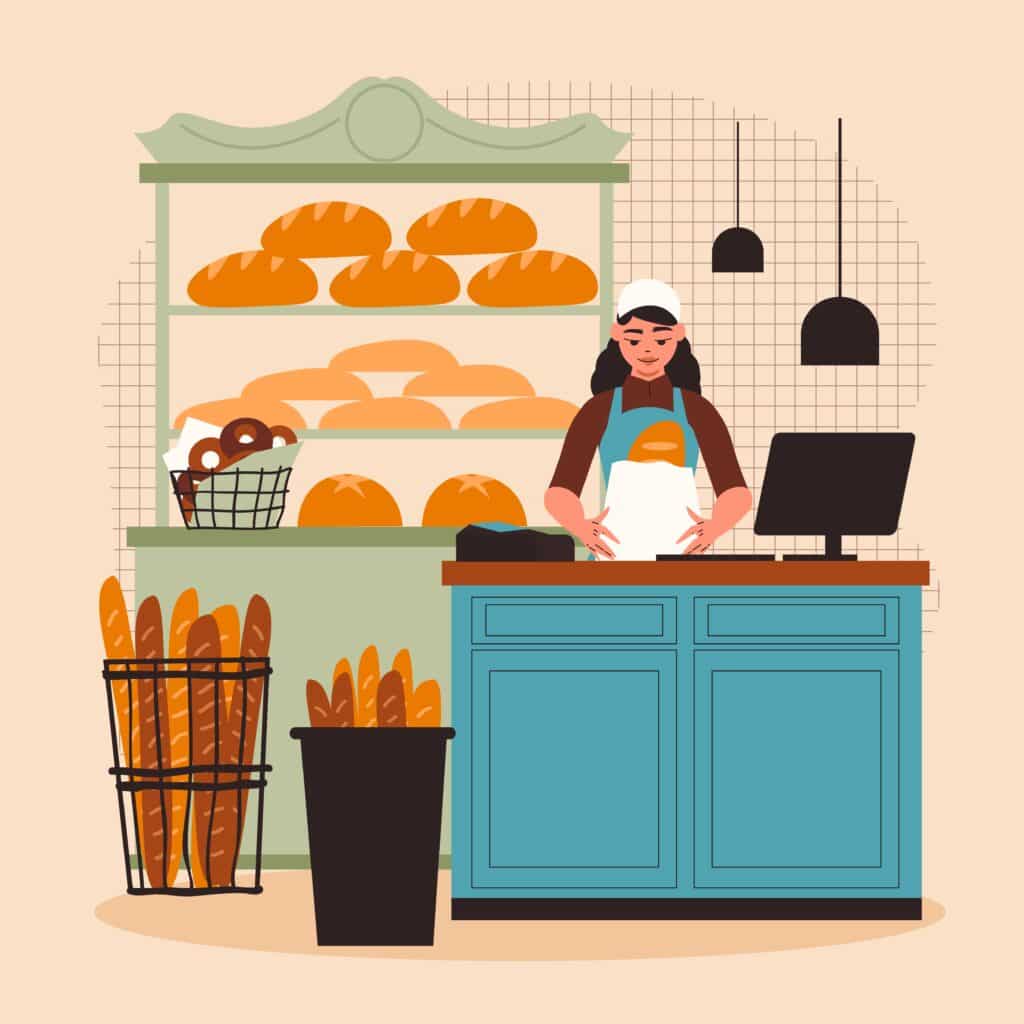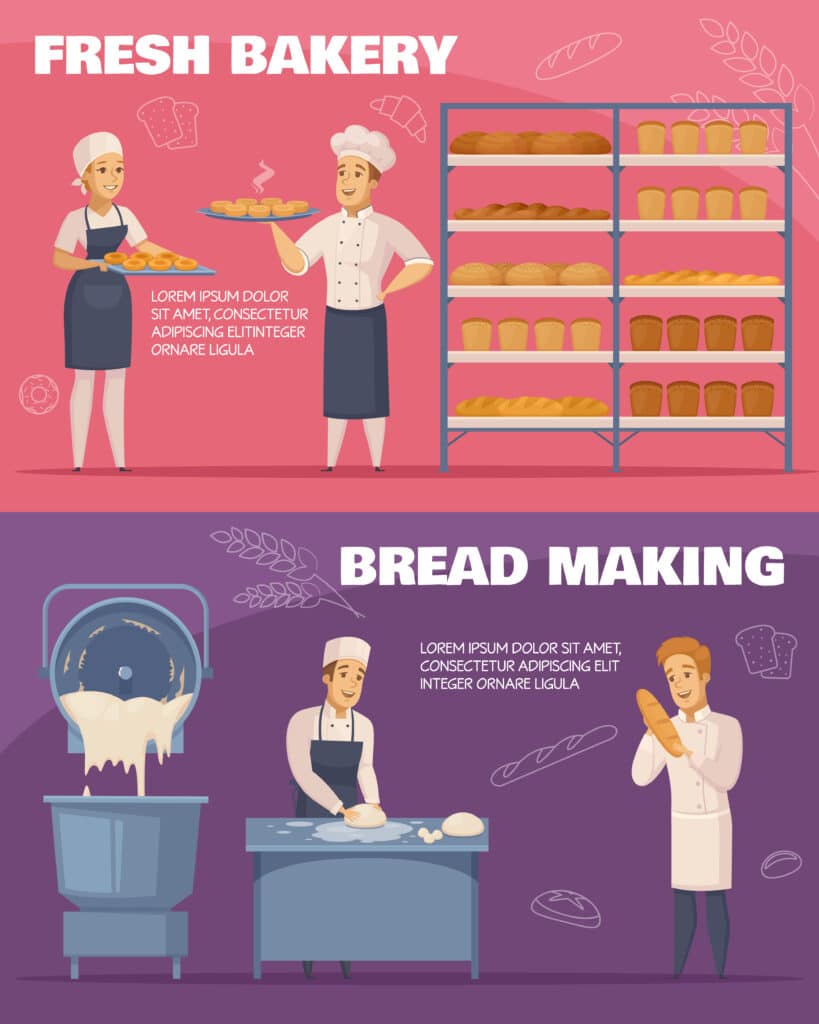In the bustling world of bakeries, where delectable pastries and mouthwatering treats take center stage, there’s a secret ingredient that is often overlooked but essential for success: a bakery POS system. From managing inventory to streamlining sales and customer service, this innovative technology has revolutionized the way bakeries operate. Gone are the days of juggling multiple tasks manually; now, with just a few clicks, bakers can effortlessly track their ingredients, monitor sales in real-time, and provide an exceptional experience for their customers. Join us as we uncover how this powerful tool has become the backbone of a thriving bakery business.
The importance of a POS system in bakeries
A point of sale (POS) system is important for bakeries to be successful. It helps them work faster and more accurately to meet customer demand. With a POS system, bakery owners can easily take orders and manage their inventory. They can also track sales and see which products are popular. This information helps them make smart decisions about what to sell. By focusing on what customers want, bakery owners can make more money.

Bakeries can use customer loyalty programs and integrated payment options to reward repeat customers and make transactions faster and more convenient. These systems also have built-in CRM functionality, which allows bakery owners to collect customer information and offer personalized promotions or discounts. In conclusion, a POS system is not just an expense for bakeries; it’s an investment that helps manage inventory efficiently and provide personalized experiences for customers, ultimately maximizing profits and staying ahead of the competition.
Streamlining Operations: Efficiency through automation and organization
One of the biggest challenges faced by bakery owners is maintaining efficient operations in a fast-paced environment. With numerous tasks to juggle and tight deadlines to meet, it can be overwhelming to keep everything organized. However, implementing automation and organization methods can streamline operations and improve overall efficiency.
One way to achieve this is by using a point of sale (POS) system specifically designed for bakeries. These systems not only handle sales transactions but also offer features such as inventory management, employee scheduling, and recipe tracking. By automating these tasks, bakery owners can save time and reduce the risk of human error. Additionally, with accurate inventory management capabilities, they can prevent ingredients from running out unexpectedly or avoid overstocking items that may expire.
Another aspect where automation can be beneficial is in streamlining communication within the bakery. Implementing an internal messaging platform or staff scheduling app allows employees to coordinate their tasks efficiently without interruptions or misunderstandings. With clear channels of communication established through technology, bakery owners can ensure better teamwork and faster response times when unexpected issues arise.
In conclusion, using POS systems and internal messaging platforms in bakeries improves efficiency. It saves time by simplifying inventory management and scheduling. It also improves communication among staff members for better cooperation. Embracing technology in these areas allows bakery owners to focus on satisfying customers with delicious treats while enjoying smoother operations.
Inventory Management: Keeping track of ingredients and supplies
Inventory management is a vital component of running a successful bakery. Keeping track of ingredients and supplies ensures that your products are always freshly made and available to customers. With the help of a POS system, managing inventory becomes much easier and efficient.
Using a POS system for inventory management has a big advantage: it can send alerts when stock is running low. This helps keep the right amount of ingredients and supplies on hand, so there are no surprises that could cause delays or lower quality.

Additionally, a POS system offers real-time tracking of sales and inventory, allowing you to accurately forecast future demand. By analyzing sales patterns, you can make informed decisions about ordering quantities and timing to prevent overstocking or wastage. This not only helps you save money but also reduces the risk of spoilage or expiration.
Ultimately, effective inventory management through a well-integrated POS system enables bakeries to streamline operations, maximize profitability, and deliver consistent quality products to customers.
Sales and Reporting: Analyzing performance and making data-driven decisions
Running a successful bakery requires analyzing sales and using data to make decisions. A good point of sale (POS) system helps manage transactions and gives insights into your business’s finances. It can generate reports on sales trends, product performance, and customer behaviors. This helps with inventory and marketing decisions.
But reporting is not just about identifying what works; it also helps you pinpoint areas where improvement is needed. By studying sales reports, you can identify low-performing products or slow-selling periods and take proactive steps to address them. Understanding these patterns enables you to optimize your production processes by adjusting baking schedules or offering promotions during slower periods.
In short, using a good Bakery POS system with strong reporting tools helps analyze sales performance accurately. This analysis helps make smart decisions to manage inventory and find growth opportunities. By using data to make decisions, bakeries can succeed in a competitive market.
Customer Experience: Enhancing service and convenience
In the competitive world of bakeries, it’s not just about serving up mouth-watering treats anymore. Customers are increasingly looking for convenience and exceptional service to accompany their favorite pastries. This is where a reliable POS system can make all the difference in enhancing the overall customer experience.
With a well-integrated POS system, bakeries can streamline their operations and provide faster checkout processes, reducing waiting times for customers. Imagine walking into a bakery during peak hours and being able to breeze through a quick and efficient payment process! Such convenience not only saves time but also leaves customers feeling satisfied and impressed with the level of service.
Additionally, a robust POS system allows for personalized interactions with customers, enabling bakeries to build stronger relationships with their clientele. By saving customer preferences and purchase history, staff can give personalized suggestions or discounts based on individual tastes or dietary needs. Remembering specific details about each customer builds loyalty and makes them feel valued. A reliable POS system helps bakeries provide better service and convenience, setting them apart from competitors and leaving customers wanting more.
Security and Fraud Prevention: Protecting sensitive information and assets
In today’s digital landscape, ensuring the security of sensitive information and assets is crucial for businesses of all sizes. This rings especially true for bakeries that handle a large volume of transactions, making them potential targets for fraud and cybercrime. Implementing a robust POS system not only streamlines operations but also provides a layer of protection against these threats.
One key aspect to consider in security and fraud prevention is data encryption. A high-quality POS system will encrypt customer data during transmission and storage, reducing the risk of unauthorized access or interception. Additionally, incorporating strong authentication methods such as two-factor authentication can add an extra layer of security, preventing attackers from gaining unauthorized access to your bakery’s systems.
Moreover, proactive monitoring and alert systems are paramount when it comes to protecting sensitive information and assets. A reliable POS solution should have built-in mechanisms that constantly monitor for suspicious activities or anomalies in transaction patterns. These alerts can help you identify potential instances of fraud early on, allowing you to take swift action before significant damage occurs. Remember, investing in robust security measures not only protects your customers but also enhances your bakery’s reputation as a trusted establishment in the market.
Conclusion: The key role of a POS system in bakery success
In conclusion, it is apparent that a POS system plays a crucial role in the success of a bakery. Not only does it streamline operations and improve efficiency, but it also empowers bakery owners with valuable data and insights. By leveraging the capabilities of a modern POS system, bakeries can optimize their inventory management, analyze sales trends, and make informed business decisions.
One key benefit that cannot be overlooked is the ability to provide exceptional customer service. With a robust POS system in place, bakery staff can quickly process orders and payments, reducing waiting times and improving overall customer satisfaction. Additionally, a modern POS system can integrate with loyalty programs or offer personalized promotions based on customer purchase history — all of which contribute to building strong relationships with customers.
Furthermore, as consumer preferences continue to evolve towards digital transactions and online ordering, having an e-commerce enabled POS system is essential for staying competitive in today’s market. A well-integrated online platform allows bakeries to reach broader audiences beyond their physical location and conveniently fulfill orders through various channels such as delivery or pickup. This increased accessibility not only attracts new customers but also ensures convenience for existing ones.
Overall, investing in a reliable POS system is undoubtedly the secret ingredient to unlocking success in the highly competitive world of bakeries. It provides the necessary tools for efficient operations management while allowing businesses to adapt to changing consumer demands seamlessly.

